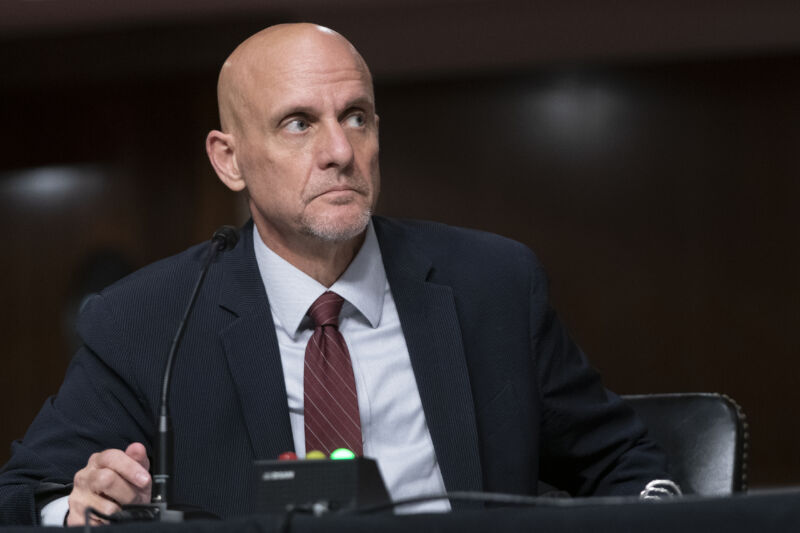
Update 11:25pm EST: The US Food and Drug Administration has issued an emergency use authorization for the COVID-19 vaccine developed by Pfizer and BioNTech.
In a late-night statement, Peter Marks, director of the FDA’s Center for Biologics Evaluation and Research, said:
While not an FDA approval, today’s emergency use authorization of the Pfizer-BioNTech COVID-19 Vaccine holds the promise to alter the course of this pandemic in the United States… With science guiding our decision-making, the available safety and effectiveness data support the authorization of the Pfizer-BioNTech COVID-19 Vaccine because the vaccine’s known and potential benefits clearly outweigh its known and potential risks.
The announcement comes just hours after reports that the Trump administration pressured the agency and reportedly threatened FDA commissioner Stephen Hahn to finalize the authorization Friday. The FDA announced Friday morning that it was “rapidly” working to finalize the issuance, which was initially expected Saturday.
In his statement, Marks added that “Efforts to speed vaccine development have not sacrificed scientific standards or the integrity of our vaccine evaluation process… Today’s achievement is ultimately a testament to the commitment of our career scientists and physicians, who worked tirelessly to thoroughly evaluate the data and information for this vaccine.”
Immediately after the agency announced the authorization, President Trump released a video message touting the achievement.
Distribution of the vaccine is expected to begin in the coming days.
Original story 4:27pm EST:
The US Food and Drug Administration may finalize authorization for the first COVID-19 vaccine later today, Friday, which would accelerate an already breakneck regulatory pace in the wake of intense pressure and threats from the Trump Administration.
According to multiple reports, the FDA was expecting to finalize the Emergency Use Authorization for the two-dose Pfizer/BioNTech COVID-19 vaccine early Saturday. That final sign off would land less than 48 hours after the agency’s independent advisory committee endorsed granting the EUA in a vote late Thursday of 17 to 4, with one abstention.
Earlier this week, the FDA released a briefing of its own review of the Pfizer/BioNTech mRNA vaccine, finding it “highly effective” and with a “favorable safety profile.”
In a joint, early-morning statement today, FDA commissioner Stephen Hahn and Peter Marks, director of the FDA’s Center for Biologics Evaluation and Research, said the finalized EUA was imminent. “Following yesterday’s positive advisory committee meeting outcome…” the FDA “will rapidly work toward finalization and issuance of an emergency use authorization.”
But the agency’s rapid work was apparently not fast enough for the Trump administration.
According to a report by the Washington Post this afternoon, White House Chief of Staff Mark Meadows told Hahn today that he is to submit his resignation if the agency does not finalize the authorization by the end of the day. The Post cited unnamed sources familiar with the situation but not authorized to discuss it with the press. Hahn has since denied that he was threatened.
Meanwhile, Trump raged at the FDA on Twitter, writing: “While my pushing the money drenched but heavily bureaucratic @US_FDA saved five years in the approval of NUMEROUS great new vaccines, it is still a big, old, slow turtle. Get the dam vaccines out NOW, Dr. Hahn @SteveFDA. Stop playing games and start saving lives!!!”
Regulatory heat
Regulators at the FDA are now rushing to complete a fact sheet to accompany the vaccines as well as information for physicians and other documents required to complete the authorization, according to reporting by the New York Times. Pfizer is likely also feeling some of the pressure, as they are required to review certain documents before the authorization is finalized.
Importantly, the difference between an authorization late Friday and early Saturday is not expected to influence when a vaccine will actually ship and reach Americans, sources noted to the Times.
In an interview with ABC’s Good Morning America, Secretary of Health and Human Services Alex Azar said, “We could see people getting vaccinated Monday, Tuesday of next week.”
While the political drama may worry some that the regulatory review of the vaccine was rushed, it should be noted that the FDA’s independent advisory committee was overwhelmingly enthusiastic about endorsing the EUA issuance. Only four of the committee’s 22 voting members voted against endorsing authorization and one abstained.
At least several of those votes were due to the age cut off for vaccine access, rather than any significant concerns over safety or efficacy. The EUA was issued for those aged 16 years and older, while some on the advisory committee felt it should be limited to ages 18 and above for now, pending further pediatric trial data. If the age cut-off had been raised slightly, the committee could have had a near unanimous—if not unanimous—vote in favor of the EUA.
https://arstechnica.com/?p=1729464

